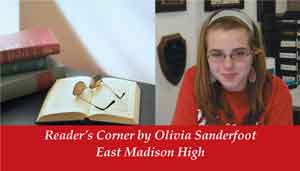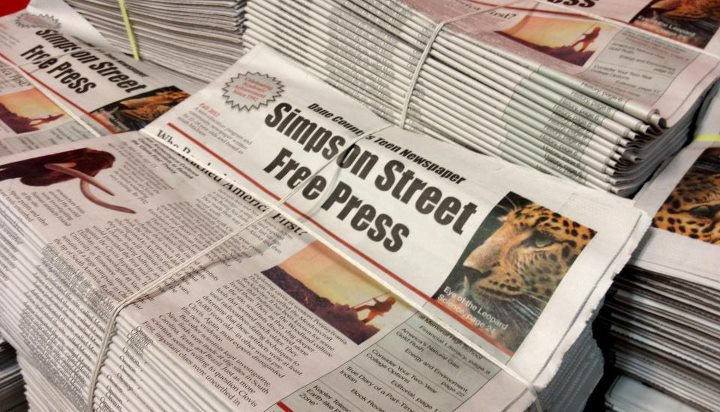|
|
Modern Technology Can Enhance the Teaching and Learning of Classic
Literature
by Olivia Sanderfoot, age 16
 A common characteristic of the
modern high school curriculum is a canon of classic literature: a list
of books all teens must read before they enter adulthood. But each
school year, as perspectives, technology, and entertainment change, the
stories of those classic novels become less accessible to today’s teens.
A common characteristic of the
modern high school curriculum is a canon of classic literature: a list
of books all teens must read before they enter adulthood. But each
school year, as perspectives, technology, and entertainment change, the
stories of those classic novels become less accessible to today’s teens.
High
school English teachers are forced to find ever more innovative and
engaging ways to enlighten their students about the wonders of Faulkner,
Austin, and Steinbeck. They are faced with the challenge of pushing
their students beyond the simple enjoyment of a story and toward a true
understanding of the text and the ability to critically analyze that
text at the high school level. And technology is giving these teachers a
helping hand.
Few high school students are unfamiliar with
technology. E-mail, Facebook, Twitter, and MySpace are not only the
social norm, but are now becoming necessary to communicate with peers
about group projects and social events. Many teachers have discovered
that this new technology is the key to helping high school students
navigate their way through classic literature.
While new
methods are still being developed, many teachers have started to employ
blogs and forums for online discussions. New-and-improved books on CD
and recent movie adaptations of classic novels are used in some
curriculums to help students feel like they’re inside the story. Instead
of a folder, students submit assignments via virtual “drop boxes.”
Electronic copies of course materials are also often available online.
This use of technology is beginning to change higher-level
education as more colleges and universities use online resources.
New technology not only helps high school students understand the
classics, but also gives high school graduates a chance to tackle them
in an easier format. Several websites now send online members serialized
stories or novels through E-mails or RSS feeds.
An
extremely popular site, DailyLit.com, created by author Susan Danziger
and her husband Albert Wenger, sends subscribers daily excerpts of
classic novels via E-mail. Members not only pick the book they wish to
read, but decide how much of the novel they wish to receive everyday. In
addition, e-readers such as the “Nook” from Barnes and Noble make
buying and reading classic novels easy by allowing customers to
electronically download books.
As technology changes the
literary world, it’s important that teachers and administrators continue
to update their curriculum and teaching methods. By embracing these
changes, educators can still teach the same canon of classics to a more
digitally entranced population.
[Sources: http://www.helium.com,
http://www.pcworld.com]
|
|


As usual, I appreciate your thoughtful discussion of current issues in literature and education. I agree that integration of technology is an inevitable transition that many educational systems will have to embark on. There are certainly benefits to the use of technology: the appeal to the younger generation and perhaps the utility of easily accessible resources and forums for debate. Do you have any thoughts, anecdotal or research-based, on what potentially negative consequences might be from a shift towards more electronic forums to discuss literature? – Andrea L. Gilmore , Madison, WI (2010-11-20 15:42)